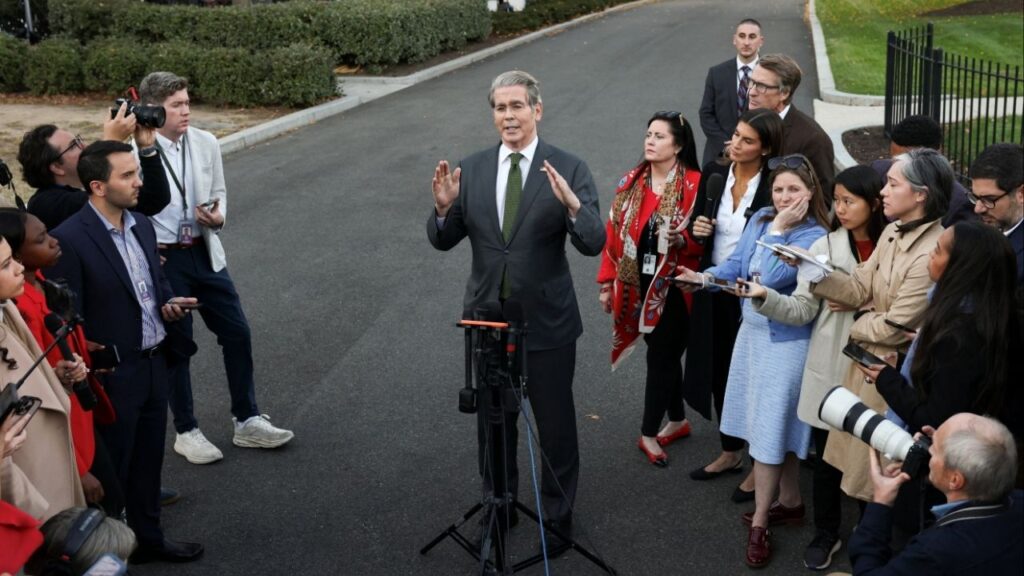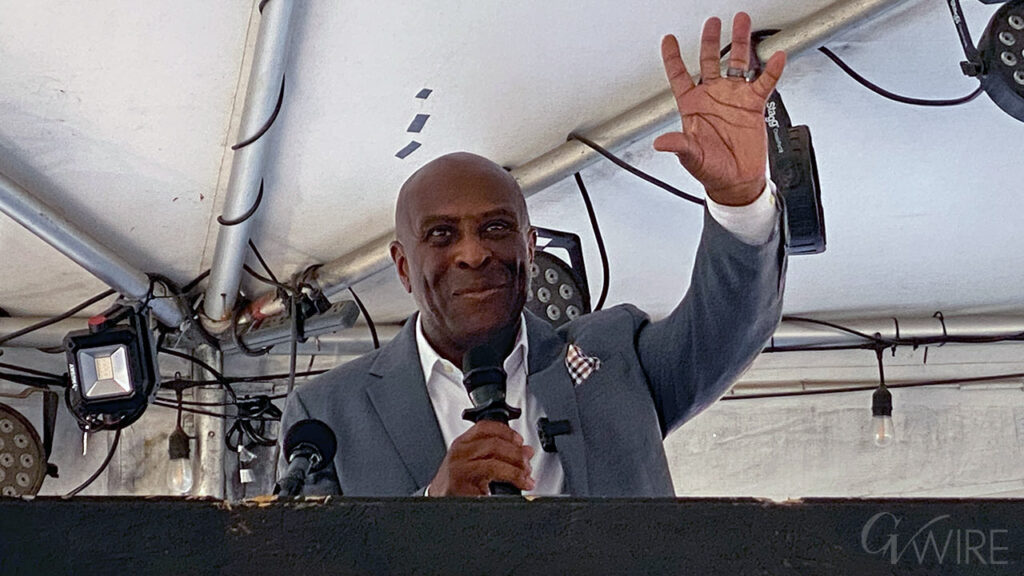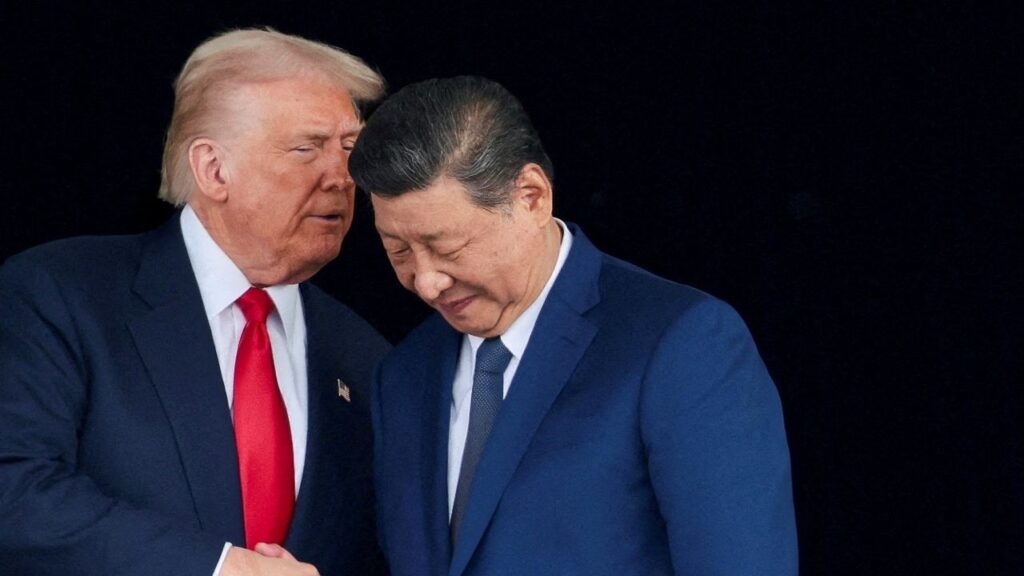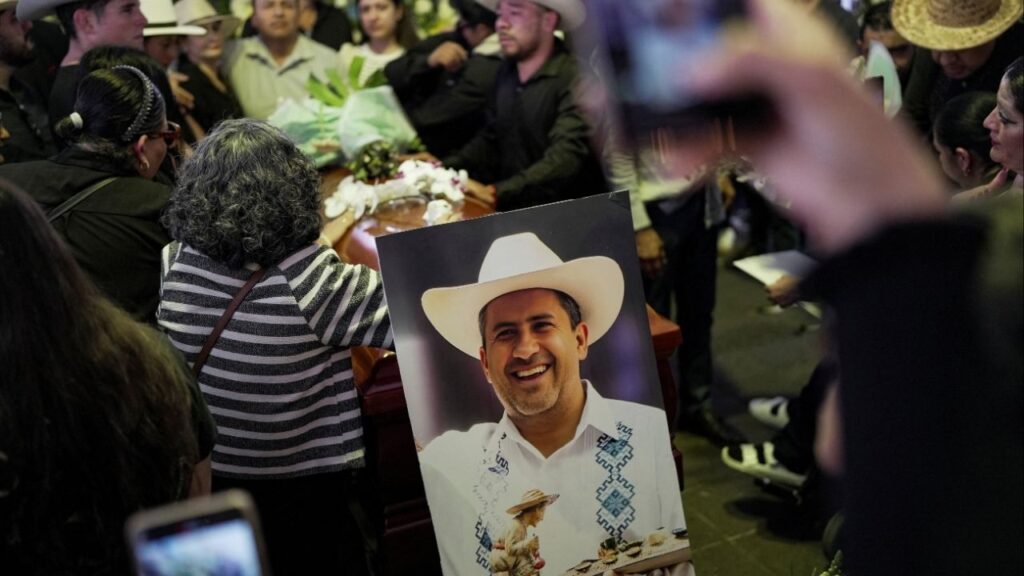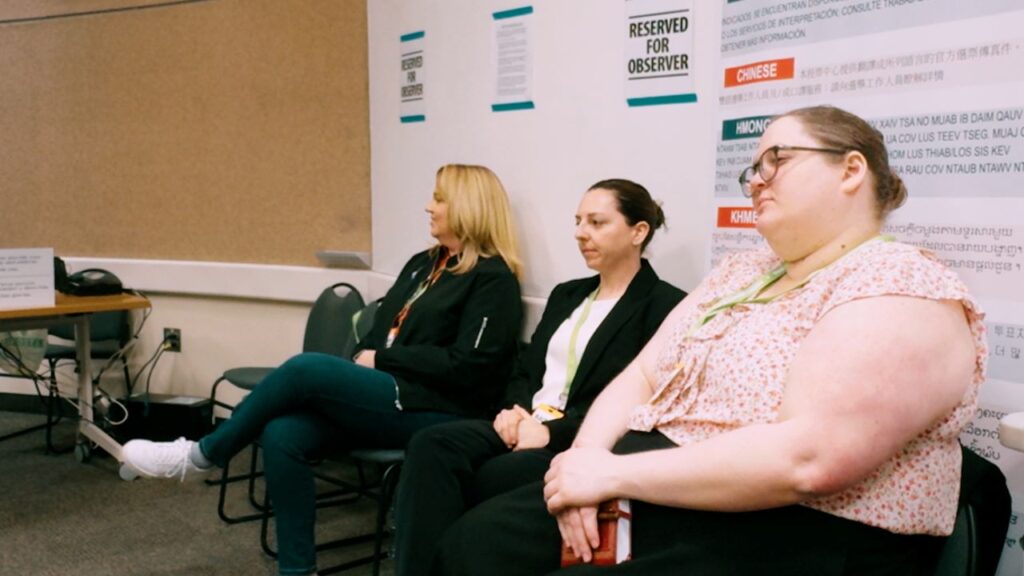The student union at Florida International University’s main campus in Miami, on Nov. 4, 2024. Courses marked for removal at FIU include Introduction to East Asia, Intercultural/Interracial Communication, and Labor and Globalization. (Martina Tuaty/The New York Times)

- Florida's public universities remove courses from core curriculum to comply with law curbing "identity politics" in higher education.
- Critics argue the move infringes on university autonomy and limits students' exposure to diverse perspectives in their education.
- State officials defend the changes, citing public concerns about indoctrination and aiming to standardize general education across institutions.
Share
|
Getting your Trinity Audio player ready...
|
Several years ago, to attract more students, Jean Muteba Rahier spiced up the name of his introduction to the anthropology of religion course. He called it Myth, Ritual and Mysticism.
Now Rahier, a professor at Florida International University in Miami, believes the name was perhaps too provocative for higher education in the Sunshine State.
Rahier’s class, which was flagged as having “unproven, speculative or exploratory content,” was one of nearly two dozen courses university trustees voted in September to remove from a core set of classes that students must choose from to graduate.
The slashing of core classes across the state, which has often been based on course titles and descriptions, is meant to comply with a state law passed last year that curbed “identity politics” in the curriculum. The law also bars classes from the core that “distort significant historical events” or that include theories that “systemic racism, sexism, oppression, and privilege are inherent in the institutions of the United States.”
Florida has become a testing ground for a raft of conservative policies meant to limit or expunge what Republicans describe as “woke” indoctrination in the state’s schools and colleges. Faculty and student critics have said this latest effort infringes on university autonomy and could reduce students’ exposure to courses they believe are necessary for a well-rounded education. Academic freedom advocates worry it marks a new, more organized approach.
Related Story: ‘Woke’ Terminology Not Commonly Used by Americans: YouGov Survey
Rather than trying to regulate what a professor can and cannot say — a legally questionable tactic — the new strategy is taking aim at entire courses.
The state’s scrutiny of the curriculum in the public colleges could serve as a model for Republican efforts in other states, as colleges are bracing for the return to power of President-elect Donald Trump, who has vowed “to reclaim our once great educational institutions from the radical left.”
Already, lawmakers elsewhere have turned their attention to universities’ curricula.
The Wyoming Senate this year passed a bill, rejected by the House, that would have defunded gender studies programs at the University of Wyoming. At Texas A&M University, the Board of Regents directed the president this month to eliminate “low-producing” programs, which included an LGBTQ+ minor targeted by a lawmaker. At the University of North Texas, administrators removed terms like “race” and “gender” from some course titles, a move some faculty believe was in response to a state law banning diversity, equity and inclusion offices on campuses.
Related Story: Trump Wants to End ‘Wokeness’ in Education. He Has Vowed to Use ...
The 22 courses that trustees marked for removal at Florida International University are heavily focused on social sciences, including Introduction to East Asia, Intercultural/Interracial Communication and Labor and Globalization. More than two dozen other courses updated their descriptions to comply with the law. Similar efforts — though the exact number of courses affected wasn’t immediately clear — played out across the state’s public universities.
Ray Rodrigues, chancellor of the State University System of Florida, said the effort was fluid and wouldn’t be final until the Board of Governors, which oversees the 12-school system, meets in January.
“When the state begins to regulate what we can teach at the level of the university,” said Katie Rainwater, whose class, Sociology of Gender, is marked for removal from the core curriculum, “then we have to question whether the university can serve its social function, which is to be a place of free inquiry.”
In an interview, Rodrigues, an ally of Gov. Ron DeSantis, rejected the academic freedom and autonomy concerns voiced by faculty members, arguing that the effort doesn’t specify what a professor should be teaching in class.
“We’re a marketplace of ideas,” he said. “That’s what a university is. But the manager that runs the marketplace determines where within the marketplace the ideas will be housed.”
Related Story: California’s ‘Woke’ Math Curriculum Threatens to Worsen ...
Rodrigues said he wanted to make general education “broad and foundational” and more standardized across the state, and doing so would make transferring credits for students coming from the state’s community colleges more seamless.
But Rodrigues also said that Florida was trying to address a concern among the public that higher education was “more about indoctrination than education,” citing a Gallup poll that found Americans’ confidence in higher education had plunged in recent years.
—
This article originally appeared in The New York Times.
By Vimal Patel/Martina Tuaty
c.2024 The New York Times Company








